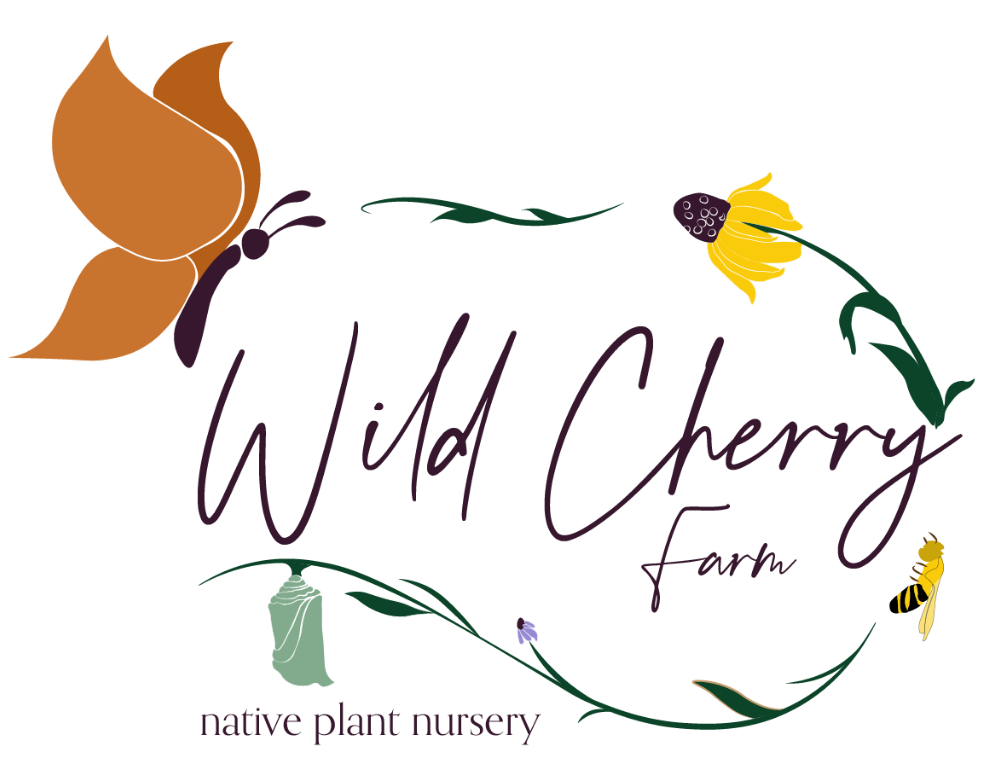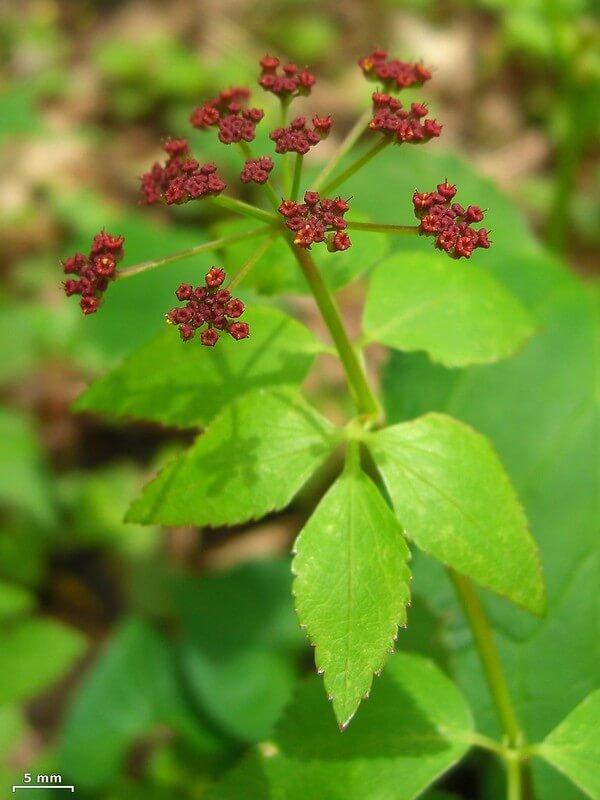Blue-stemmed Goldenrod (Solidago caesia)
Blue-stemmed Goldenrod is probably my favorite Goldenrod. Plus, it has very high value to pollinators, especially the specialists. The nectar and pollen of the flowers attract a wide variety of insects, especially native bees (illinoiswildflower.info). It is also the host plant to 135 species of butterflies and moths in our area (nwf.org) as well as the host to an incredible 43 specialist bees (Holm, 2017) (Johnson and Colla, 2023). It is also great to have an option that blooms in the shade! Goldenrods in general provide so many ecosystem services even when most other plants are shutting down for the season. Just something to keep in mind, goldenrods do not cause hay fever! Their pollen is too heavy, it is the wind-pollinated (but not as visually obvious) ragweed that causes it.
Blue-stemmed Goldenrod is probably my favorite Goldenrod. Plus, it has very high value to pollinators, especially the specialists. The nectar and pollen of the flowers attract a wide variety of insects, especially native bees (illinoiswildflower.info). It is also the host plant to 135 species of butterflies and moths in our area (nwf.org) as well as the host to an incredible 43 specialist bees (Holm, 2017) (Johnson and Colla, 2023). It is also great to have an option that blooms in the shade! Goldenrods in general provide so many ecosystem services even when most other plants are shutting down for the season. Just something to keep in mind, goldenrods do not cause hay fever! Their pollen is too heavy, it is the wind-pollinated (but not as visually obvious) ragweed that causes it.
Blue-stemmed Goldenrod is probably my favorite Goldenrod. Plus, it has very high value to pollinators, especially the specialists. The nectar and pollen of the flowers attract a wide variety of insects, especially native bees (illinoiswildflower.info). It is also the host plant to 135 species of butterflies and moths in our area (nwf.org) as well as the host to an incredible 43 specialist bees (Holm, 2017) (Johnson and Colla, 2023). It is also great to have an option that blooms in the shade! Goldenrods in general provide so many ecosystem services even when most other plants are shutting down for the season. Just something to keep in mind, goldenrods do not cause hay fever! Their pollen is too heavy, it is the wind-pollinated (but not as visually obvious) ragweed that causes it.
Life Cycle: Perennial
Sun Exposure: Partial shade, shade
Soil Moisture: Medium, Medium-dry
Height: 3 feet
Plant Spacing: 2 feet
Bloom Time: August - October
Bloom Color: Yellow
Advantages: Caterpillar Favorite, Pollinator Favorite, Bird Favorite, Deer Resistant
Host Plant: about 135 species of caterpillars and many moths use this as a host plant in our area (nwf.org)
Specialist Bee: Andrena aliciae, A. apacheorum, A. asteris, A. braccata, A. canadensis, A. Chromotricha, A. hirticincta, A. nubecula, A. placata, A. simplex, Perdita octomaculata, P. swenki, Pseudopanurgis aestivalis, P. andrenoides, P. compositarum, P. labrosiformis, P. solidaginis, Melissodes agilis, M. boltoniae, M. coloradensis, M. coreopsis, M. dentiventris, M. druriellus, M. fumosus, M. illatus, M. menuachus, M. microstictus, M. niveus, M. trinodis, M. wheeleri, Colletes americanus, C. compactus, C. rufocinctus, C. simulans, C. solidaginis, C. speculiferus, Dieunomia heteropoda, Dianthidium simile, Dufourea marginata, Megachile inimical, M. parallela, M. xylocopoides, and Ashmeadiella bucconis (Holm, 2017) (Johnson and Colla, 2023)
Resource: Holm, Heather. Bees: An Identification and Native Plant Forage Guide. Pollination Press LLC, 2017
Resource: Johnson, Lorraine, and Sheila Colla. A Northern Gardener’s Guide to Native Plants and Pollinators: Creating Habitat in the Northeast, Great Lakes, and Upper Midwest. Island Press, 2023








